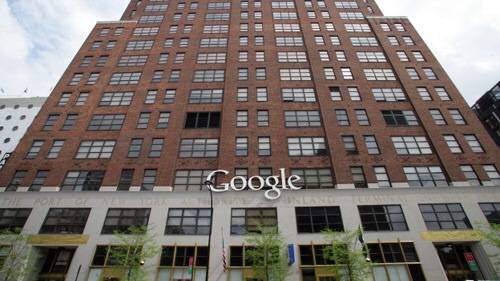
Guest author Derek Brown is a technology executive and analyst who blogs at One Blind Squirrel.
Yesterday at the playground, Google threw a handful of sand in Apple’s eye.
With a subtle, yet powerful update to its Gmail for iOS app, links to YouTube, Google Maps and Chrome now go directly to those relevant apps (if installed), instead of the mobile web.
In my view, this is an absolutely brilliant backdoor play through which Google can not only neutralize Apple, but also leverage Apple’s tremendous success to its own benefit, by enhancing the experience of Google’s dedicated users, deepening loyalty to Google’s own products, and driving incremental revenue for Google.

Perhaps more important, yesterday’s Gmail for iOS update is a textbook example of why Google will emerge victorious (at Apple’s expense) in the battleground of tomorrow, Web services.
As discussed in “Welcome to Google’s Playground, Apple,” mobile hardware and core OS functionality have largely reached a near-term point of peak innovation; as a result, the product itself will become effectively transparent to the end user, with attention, instead, shifting to the Web (or, cloud) services/content that those devices allow easy access to on an anywhere, anytime basis.
Unfortunately for Apple, this shift substantially diminishes the value of its closed-loop hardware/software core, while simultaneously highlighting the strengths of Google’s business. To this end, almost everything Google has done since inception has focused on anywhere, anytime cloud services that function like utilities – seamlessly, across all devices, across all operating systems, all the time – at low or no incremental cost, in the face of stiff competition.
Moreover, Google absolutely prints money, either directly or indirectly, from use of many of these cloud-based services, even if those services are accessed via an Apple device (e.g., Gmail for iOS). Apple, on the other hand, is almost at ground zero.
For Apple to compete broadly on the battleground of tomorrow, it must quickly introduce a broad spectrum of high-impact, high-value, mass-consumption Web services that function seamlessly across all vendors, all OSs, and all devices. And, the only way I see it doing so expeditiously and successfully is through acquisition – buying services that have already proven themselves in the hands of consumers at scale.
If Apple doesn’t, it risks seeing its precious hardware turned into little more than access devices for Google’s services, even as it continues losing marketshare to Google’s own Android-based hardware devices, which do an even better job of accessing Google’s services.
Seems like a slightly less painful lose-lose to me.
Lead image courtesy of Northfoto/Shutterstock
















